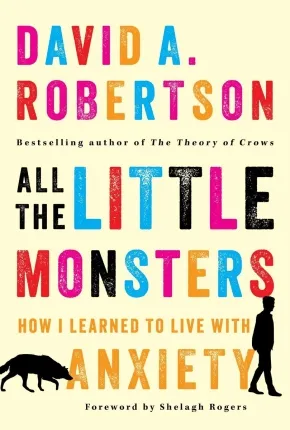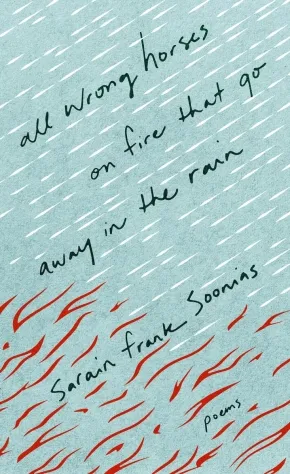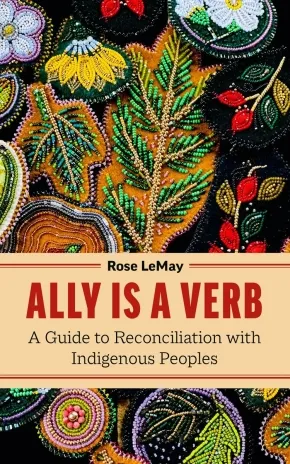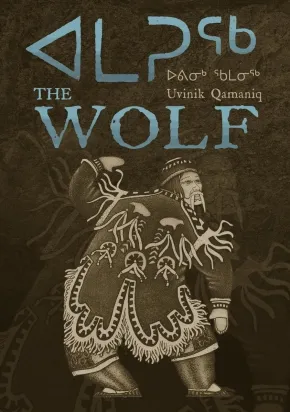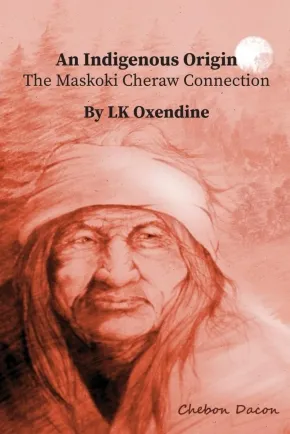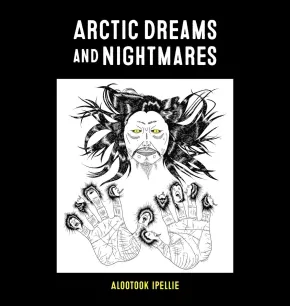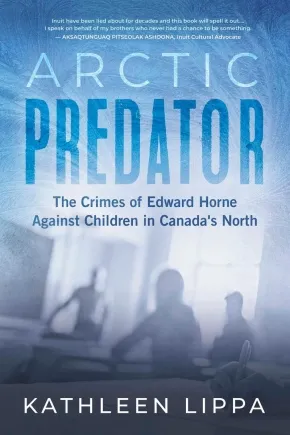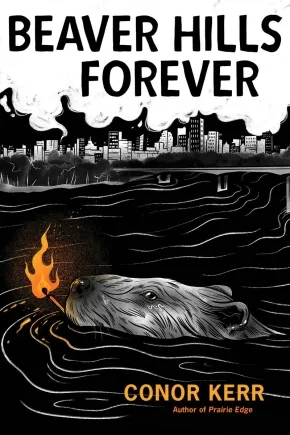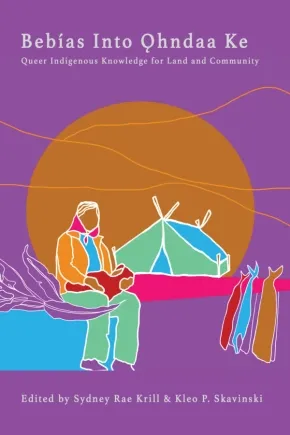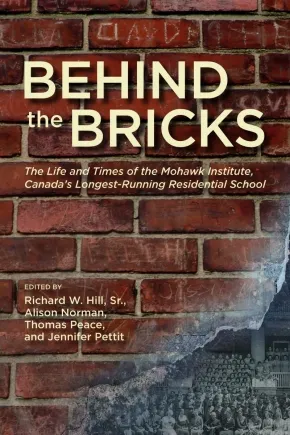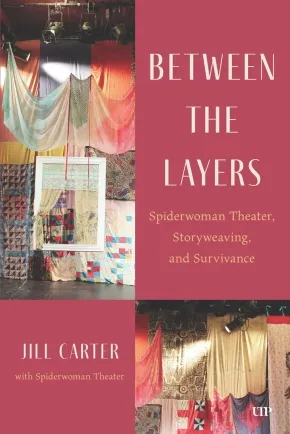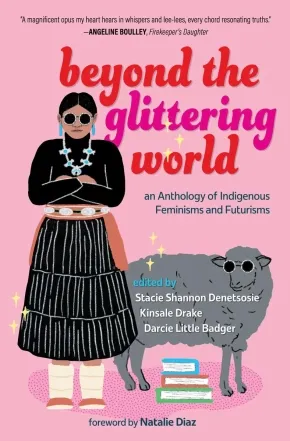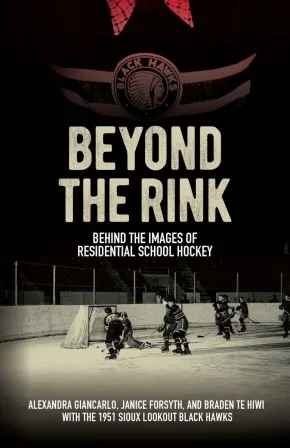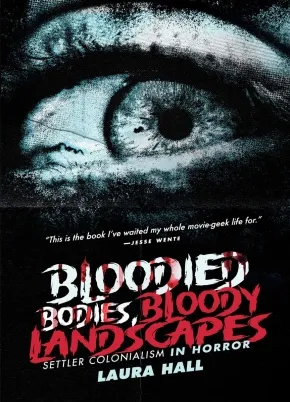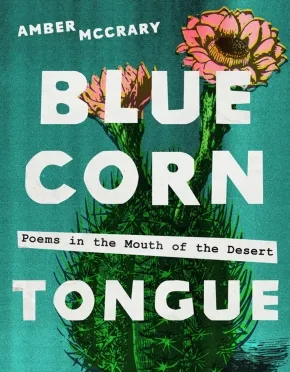Indigenous Studies
Synopsis:
With humour, warmth and heartbreaking honesty, award-winning author David A. Roberston explores the struggles and small victories of living with chronic anxiety and depression, and shares his hard-earned wisdom in the hope of making other people’s mental health journeys a little less lonely
From the outside, David A. Robertson looks as if he has it all together—a loving family, a successful career as an author, and a platform to promote Indigenous perspectives, cultures and concerns. But what we see on the outside rarely reveals what is happening inside. Robertson lives with “little monsters”: chronic, debilitating health anxiety and panic attacks accompanied, at times, by depression. During the worst periods, he finds getting out of bed to walk down the hall an insurmountable task. During the better times, he wrestles with the compulsion to scan his body for that sure sign of a dire health crisis.
In All the Little Monsters, Robertson reveals what it’s like to live inside his mind and his body and describes the toll his mental health challenges have taken on him and his family, and how he has learned to put one foot in front of the other as well as to get back up when he stumbles. He also writes about the tools that have helped him carry on, including community, therapy, medication and the simple question he asks himself on repeat: what if everything will be okay?
In candidly sharing his personal story and showing that he can be well even if he can’t be “cured,” Robertson hopes to help others on their own mental health journeys.
Additional Information
272 pages | 6.00" x 9.00" | Paperback
Synopsis:
A captivating search through one family’s history, All Wrong Horses on Fire that Go Away in the Rain is a stunning examination of intergenerational trauma and its effect on Indigenous voices. Aftershocks and fragmented memories ricochet through this collection, bringing with them strength, intensity and uninhibited beauty. Recalling pivotal work by Billy-Ray Belcourt, jaye simpson, Joshua Whitehead and Emily Riddle, Sarain Frank Soonias makes his poetic debut with a splash that ripples far outside his own work, and marks the entrance of a new, important voice in contemporary poetry.
Reviews
“Sarain Frank Soonias introduces us to himself and his craft with this strong, stunning debut. Language woven together with skillful storytelling and metaphor reminds us that our people will always create beautiful art, even in what feels like an abyss. This book is about the responsibility we have to heal ourselves while collectively working for a better world for future generations.” — Emily Riddle, award-winning author of The Big Melt
Additional Information
132 pages | 9.00" x 5.50" | Paperback
Synopsis:
Your next step on the journey of reconciliation starts here.
What can you do to be a better ally for your Indigenous colleagues, community members, and friends? By actively listening to the history and current lived experiences of Indigenous peoples, you can take steps to address the inequities they continue to face. Author Rose LeMay notes that if you continually educate yourself, you will see many opportunities to be an ally.
This insightful book suggests how to enter the field of reconciliation in a good way, in your community and your workplace. You will learn:
-more about the true history shared by Indigenous peoples and colonial governments
-why reconciliation is mostly the responsibility of non-Indigenous people
-approaches to intervene when you see racism happening
-better ways to respond to emotions that come up when doing the work of an ally
-how to be an active team player for equity and inclusion
LeMay describes key principles to promote reconciliation, deepen your practice of allyship, and contribute to meaningful change.
Additional Information
200 pages | 5.00" x 8.00" | Paperback
Synopsis:
Amaruq: The Wolf was one of the first full-length novels ever written in Inuktitut. Out of print for over twenty years, this groundbreaking novel has been re-transcribed, translated, and meticulously edited to produce a commercially available bilingual version for the first time.
Written by Inuit Elder Uvinik Qamaniq, this sweeping novel oscillates between time and place. Alternating between a modern Arctic community, where a teen lives with his family and navigates the challenges of family life, to the world of Inuit stories woven by the teen's grandfather, who tells the boy of the epic coming-of-age journey of Amaruq, a young shaman, this book highlights the power of stories to teach and inform everyday experiences. With a cover illustrated by renowned Inuit artist Germaine Arnattaujuq
Educator Information
Bilingual: English and Inuktitut.
Additional Information
208 pages | 7.00" x 9.00" | 11 b&w line drawings | Paperback
Synopsis:
An Indigenous Origin – The Maskoki Cheraw Connection unveils a deeply researched and long-overlooked history of the Lumbee Tribe’s ancestral connection to the Cheraw people. Drawing on fourteen years of meticulous research, LK Oxendine uncovers historical records, maps, treaties, and cultural narratives that restore a suppressed identity erased by centuries of denial, displacement, and political marginalization.
From the ancient Maskoki territories to the arrival of Spanish, French, and British forces, this compelling account traces the Lumbee Cheraw’s journey through survival, cultural preservation, and the ongoing struggle for recognition. Oxendine’s work honors the voices of ancestors, the strength of matrilineal societies, and the unbreakable ties between people and land.
Part memoir, part ethnographic history, this book invites readers to witness the truth long hidden in archives and oral traditions, truth that affirms an honorable Indigenous heritage and demands acknowledgment in the twenty-first century.
If you are drawn to Indigenous history, identity reclamation, and the untold stories of the American Southeast, An Indigenous Origin – The Maskoki Cheraw Connection is an essential read.
Additional Information
416 pages | 6.00" x 9.00" | Paperback
Synopsis:
Utilizing intricately blended visual and written imagery, Arctic Dreams and Nightmares takes the reader on an Arctic journey interpreted through the mythological and contemporary world of an Inuit artist and author. Containing twenty short stories with accompanying pen ink drawings, it is the first publication to exclusively feature the writing and artwork of Alootook Ipellie. At the time of its original publication in 1993, Arctic Dreams and Nightmares was one of the few books to be written by an Inuk in Canada, and became a landmark in the emerging discipline of Inuit literature.
Additional Information
160 pages | 8.75" x 9.25" | Paperback
Synopsis:
The shocking crimes of a trusted teacher wrought lasting damage on Inuit communities in Canada's Arctic.
In the 1970s, a young schoolteacher from British Columbia was becoming the darling of the Northwest Territories education department with his dynamic teaching style. He was learning to speak the local language, Inuktitut, something few outsiders did. He also claimed to be Indigenous - a claim that would later prove to be false. In truth, Edward Horne was a pedophile who sexually abused his male students.
From 1971 to 1985 his predations on Inuit boys would disrupt life in the communities where he worked - towns of close-knit families that would suffer the intergenerational trauma created by his abuse.
Journalist Kathleen Lippa, after years of research, examines the devastating impact the crimes had on individuals, families, and entire communities. Her compelling work lifts the veil of silence surrounding the Horne story once and for all.
Additional Information
280 pages | 6.00" x 9.00" | Paperback
Synopsis:
An irreverent and playful novella of Metis voices that reflects the complexities of contemporary prairie life
Conor Kerr's 2024 novel Prairie Edge was a finalist for both the Giller Prize and the Atwood Gibson Writers' Trust of Canada Fiction Prize. His latest book, Beaver Hills Forever, takes a riotous, uncompromising look at the intertwined lives of four characters, each an abstract expression of the few paths available to Metis people on the Prairies. In alternating poetic verses, Buddy, Baby Momma, Fancy University Boy, and Aunty Prof share their inner dreams, hardships, delusions of grandeur, and existential plights. While the messy day-to-day is created by their own doing, the lives of these four individuals are doubly compromised by Canada's colonial education system and resource extraction industries.
A beguiling and genre-bending work, Beaver Hills Forever offers a moving, necessary exploration of education, labour, and the dynamic, ever-changing bonds that bring us back to each other. Here is a diverse, funny, pitch-perfect chorus of voices that rings loud and true over the wide prairie landscape.
Reviews
"Not every Metis kid / Needs a sad story," says a character in Conor Kerr's propulsive and deeply entertaining new work, where each bone-clean sentence holds a galaxy of stories in its marrow. Kerr is part of a vital contemporary movement that is reimagining what our literatures can be and what they can do. Beaver Hills Forever is a reminder that laughter and passion are as much a part of the narrative as struggle. In these pages, you'll find voices that demand to be heard, felt, and remembered." — Carleigh Baker, author of Last Woman and Bad Endings
"Much like his prose, Conor Kerr's Beaver Hills Forever imbues the language of everyday Indigenous life with a poetic charm that is just incredibly readable and relatable. This book is truly multitudinous: a love story, an anti-love story, a critique of neoliberalism, an ode to the Prairies, and, above all, proof that even our smallest desires are worthy of sustained poetic consideration." — Billy-Ray Belcourt, author of Coexistence
"Beaver Hills Forever is full of raunch and riot. Conor Kerr's ability to gravitate around the embodied truths of institutional whiteness, class, settler colonization, and the Indigenous (Metis) experience in the moraine of amiskwaciy is rebellious in its desire to not pathologize or rationalize the violent backdrops of its animate setting. With his skilled hand, Kerr makes sure there is "room for [all] in the digital economy of the Future." — Joshua Whitehead, author of Jonny Appleseed
"Aho, fancy reader! Welcome to Conor Kerr's Beaver Hills Forever. We'll laugh, we'll cry. We'll smoke, we'll die. Etc, etc. Beaver Hills Forever is funny, heartfelt, poetic, badass. It's Bald Boy, Goodbye, Sad Story, Indigenous Canon. Etc, etc. Magpie cackles, Metis literatures, Aunty Prof wonders, realizes, smudges, feel-good energy. Fuck all the ongoing bullshit internal politics and academic distortion and just hear the truth, etc, etc." — Jordan Abel, author of Empty Spaces and NISHGA
Additional Information
88 pages | 6.00" x 9.00" | Paperback
Synopsis:
Bebías Into Ǫhndaa Ke: Queer Indigenous Knowledge for Land and Community is a powerful collection of essays, stories and conversations that provide us with a diverse roadmap for navigating and overcoming hate, supporting queer Indigenous kin, and revitalizing radical ethics of care for building healthy, inclusive, and self-determining lands and communities. A celebration of trans, queer, and Two-Spirit Indigenous brilliance, with an intentional inclusion of voices from the North (the Yukon, Northwest Territories, Inuvialuit and Nunatsiavut), the essays in this collection offer a wealth of queer Indigenous theory, experience, and practices, with a unique emphasis on the critical role of land in these conversations.
The contributors, who range from young activists, artists, families, and both emerging and established scholars, provide insightful and transformative queer perspectives on a number of pertinent topics, including: knowledge reclamation, resurgence, nation-building, community life and governance, cultural revitalization, belonging, family relationships, creative practice, environmental degradation, mental health and wellbeing, youth empowerment, and Indigenous pedagogy. Amidst the ongoing violence of settler colonization, and its legacies of exclusion and erasure that continue to target queer, gender-diverse and Two-Spirit Indigenous people, this collection is an invaluable gift and resource for our communities, showing us that a different world is possible, and reminding us that queer Indigenous people have always belonged on the land and in community.
Additional Information
240 pages | 6.00" x 9.00" | Paperback
Synopsis:
Behind the Bricks is the story of the Mohawk Institute, Canada’s first and longest-running residential school and a model for the entire residential school system.
From the outside, the Mohawk Institute looks like a large and welcoming school building. When one looks behind the bricks of the school, however, a much different story becomes apparent. Conceived and overseen by Six Nations community member Richard W. Hill Sr., Behind the Bricks is an important work that provides deep insight into the Mohawk Institute, Canada's first, and longest-running, residential school, operating from 1828 to 1970 in Brantford, Ontario. Many see the Mohawk Institute as a model for the residential school system.
Behind the Bricks brings together Indigenous and non-Indigenous experts. The book begins with an overview that traces the history and context of the school, and the remainder of Behind the Bricks touches on a broad array of topics from the experiences of students, to archaeology and architecture, to the role of religion, and beyond, drawing on a wide variety of sources including government documents, church records, and oral history.
Behind the Bricks examines the policies and motivations that shaped the experiences of all three parties involved with the school, the government, the church, and the students and their communities.
A thorough and thoughtful history that provides deep insight into over a century of institutional operation, Behind the Bricks is an essential work that tells us not only about the Mohawk Institute, but the entire residential school system, providing a window into the past with the goal of working towards a future of truth and reconciliation.
With contributions by: William (Bill) Acres, Diana Castillo, Sarah Clarke, Jimmie Edgar, Wendy L. Fletcher, Bonnie Freeman, Tara Froman, Alexandra Giancarlo, Cody Groat, Evan J. Habkirk, Richard W. Hill Sr., Keith Jamieson, Sandra Juutilainen, Magdalena Miłosz, David Monture, Teri Morrow, John Moses, Alison Norman, Thomas Peace, Jennifer Pettit, Paul Racher, and Bud Whiteye.
Reviews
"As we continue to reckon with the legacy of colonial schooling, this timely collection helps to model how to put truth before reconciliation." — Sean Carleton, University of Manitoba
Educator Information
Table of Contents
Preface
Richard W. Hill, Sr.
Introduction
Jennifer Pettit
The Russ Moses Residential School Memoir
John Moses and Russ Moses
Part One: Historical Overview and Context of the Mohawk Institute
1. “To Shake Off the Rude Habits of Savage Life”: The Foundations of the Mohawk Institute to the Early 1900s
Jennifer Pettit
2. “The Difficulties of Making an Indian into a White Man Were Not Thoroughly Appreciated”: The Mohawk Institute, 1904 to Present
Jennifer Pettit
Part Two: Teachers, Curriculum, and Tools of Control
3. The Indian Normal School: The Role of the Mohawk Institute in the Training of Indigenous Teachers in the Late 19th Century
Alison Norman
4. Teaching Control and Service: The Use of Military Training at the Mohawk Institute
Evan Habkirk
5. “New Weapons”: Race, Indigeneity, and Intelligence Testing a thte Mohawk Institute, 1920-1949
Alexandra Giancarlo
Part Three: The Building, The Grounds, and Commemoration
6. A “Model” School: An Architectural History of the Mohawk Institute
Magdalena Miłosz
7. The Stewardship, Preservation, and Commemoration of the Mohawk Institute
Cody Groat
Part Four: Survival and Resistance
8. Ten Years of Student Resistance at the Mohawk Institute, 1903-1913
Diana Casillo
9. ęhǫwadihsadǫ ne:ˀhniˀ adigyenǫ:gyeˀs ganahaǫgwęˀ ęyagǫnhehgǫhǫ:k/They buried them, but they the seeds floated around what will sustain them.
Teri Lyn Morrow, Bonnie Freeman, and Sandra Juutilainen
Part Five: The New England Company and the Mohawk Institute
10. A Model to Follow?: The Sussex Vale Indian School
Thomas Peace
11. Robert Ashton, The New England Company, and the Mohawk Institute, 1872-1910
Bill Acres
12. The Lands of the Mohawk Institute: Robert Ashton and the Demise of the New England Company’s “Station,” 1891-1922
Bill Acres
Part Six: Student Experiences and Voices
13. Life at the Mohawk Institute During the 1860s
Thomas Peace
14. Collecting the Evidence: Restoration and Archaeology at the Mohawk Institute
Sarah Clarke, Paul Racher, and Tara Froman
15. Collective Trauma and the Role of Religion in the Mohawk Institute Experience
Wendy Fletcher
16. Concluding Voices – Survivor Stories of Life Behind the Bricks
Richard W. Hill, Sr.
Closing Poems
Jimmie Edgar
Bud Whiteye
David Monture
Acknowledgements
Appendix One: History of Six Nations Education by Jamieson
Keith Jamieson
Appendix Two: Mohawk Institute Students Who Became Teachers
Suggested Reading
Additional Information
402 pages | 6.00" x 9.00" | 89 Illustrations | Paperback
Synopsis:
This meditation on the poetics of re-worlding follows the threads of Spiderwoman Theater’s Storyweaving practice back to its Guna and Rappahannock sources to illuminate its history, mechanics, and development for coming generations.
The Spiderwoman Theatre, the longest-running Indigenous theatre company in North America has heralded the revolutionary methodology of Storyweaving for generations of Indigenous artists. Storyweaving is a distinct methodology that governs the dramaturgical structure and performed transmission of the company’s plays on the contemporary stage. The practice of Storyweaving predates written history. It has been (and remains) specific to tribal storytellers across the continent.
The reclamation, then, of this aesthetic legacy by contemporary Indigenous storytellers is a crucial act of recovery. Jill Carter, an Anishinaabe-Ashkenazi theatre-worker and scholar, examines the process and development of Storyweaving. She studies how Storyweaving imagines and architects a functional framework that is being adopted and adapted by artists from myriad nations to create works (on the page and stage) that facilitate the healing, transformation, and survivance of their communities. Between the Layers pays respects to the teachers and visionaries that moulded this practice and encourages future generations to continue its legacy, while making a much-needed contribution to the study of Indigenous theatre and performance.
In its painstaking documentation of the Storyweaving artform, Between the Layers refuses the devaluation, erasure, and suppression of Indigenous culture, while contributing to the dissemination and celebration of Indigenous Knowledge Systems.
Educator Information
Table of Contents
List of Illustrations
Acknowledgements
Spiderwoman Theater: A Performance History
Introduction: Between the Layers
Chapter One:
Persistence of Violent Delights:
“It’s All the Same Bullshit Again”
Chapter Two:
“An Indian is an Idea a Man Has of Himself”
Chapter Three:
An Indian is More than Just an “Idea”:
By Their Acts Ye Shall Know Them
Chapter Four:
Towards a Poetics of Re-Worlding:
Becoming (and then Staging) the New Human Being
Chapter Five:
The Published Texts
Chapter Six:
The Three Sisters from There to Here:
Spiderwoman’s Issue and the Project of Re-worlding
Appendices
Works Cited
Additional Information
376 pages | 6.00" x 9.00" | 8 illustrations | Hardcover
Synopsis:
From adventures in Indigenous futurism to tales of first love, the stories and poems of Beyond the Glittering World proclaim and celebrate a rising generation of Native American storytellers.
Beyond the Glittering World brings together twenty emerging and established Native women writers and writers of marginalized genders, including Moniquill Blackgoose, Heid E. Erdrich, A.J. Eversole, Chelesa Hicks, and D. Daye Hunter. Immersing readers in worlds as varied as their authors, this collection presents an array of singular voices at their genre-bending, boundary-breaking, devastating, and joyous best.
Reviews
"An evocative compilation of voices pondering Indigenous futures and the shape of Indigenous love. Beyond the Glittering World holds a healthy dose of gender-bending, genre-challenging, future-hoping might. This anthology is a welcome addition to the field of Indigenous anthologies.”—DEBORAH JACKSON TAFFA, Whiskey Tender
Additional Information
240 pages | 5.25" x 8.00" | Paperback
Synopsis:
Teammates, champions, Survivors
In 1951, after winning the Thunder Bay district championship, the Sioux Lookout Black Hawks hockey team from Pelican Lake Indian Residential School embarked on a whirlwind promotional tour through Ottawa and Toronto. They were accompanied by a professional photographer from the National Film Board who documented the experience. The tour was intended to demonstrate the success of the residential school system and introduce the Black Hawks to "civilizing" activities and the "benefits" of assimilating into Canadian society. For some of the boys, it was the beginning of a lifelong love of hockey; for others, it was an escape from the brutal living conditions and abuse at the residential school.
In Beyond the Rink, Alexandra Giancarlo, Janice Forsyth, and Braden Te Hiwi collaborate with three surviving team members-Kelly Bull, Chris Cromarty, and David Wesley-to share the complex legacy behind the 1951 tour photos. This book reveals the complicated role of sports in residential school histories, commemorating the team's stellar hockey record and athletic prowess while exposing important truths about "Canada's Game" and how it shaped ideas about the nation. By considering their past, these Survivors imagine a better way forward not just for themselves, their families, and their communities, but for Canada as a whole.
Reviews
"These three survivors-Kelly, David, and Chris-inspire us not only for what they have done for their communities in the aftermath of the residential school system but also for how crucial hockey and sports are in bringing Indigenous communities together, like we see in the Little NHL Tournament. Our history and the lessons we've learned are vital, and Beyond the Rink does an excellent job of highlighting this." — Ted Nolan, former NHL Player & Coach, Olympic Coach, and author of Life in Two Worlds: A Coach's Journey from the Reserve to the NHL and Back
"On its face, Beyond the Rink is a compelling story of a residential school hockey team from northern Ontario touring Ottawa and Toronto in the 1950s. But it is much more than that: with a National Film Board photographer accompanying them every step of the way, the players are props in a public relations exercise meant to obscure the true conditions in residential schools.
This is an unflinching and nuanced look behind the PR veil, a story of loss, triumph, perseverance, tragedy, and memory. It is also a detailed account of the machinery of residential schools and the trauma they inflicted. And it is a revealing look at the power of photographs, which can be used to both illuminate and mislead.
At its heart, Beyond the Rink is the story of twelve Indigenous hockey players, who, like their white counterparts, loved the game for the thrill of competition, but also as an escape from the relentless control and exploitation they faced on a daily basis, even if they were being exploited while doing it. This is the story of twelve boys, told through the lens of three of them, trapped in a world they barely understood, a world that was not the least bit interested in understanding them, and in many ways still isn't." — Gord Miller
"The authors have spent decades working with the Survivors whose stories they share and centre in this book. Beyond the Rink, Behind the Image does not simply tell the story of a hockey team; it demonstrates how sport within the context of residential schools was a tool of colonization." — Karen Froman
"It is difficult to overstate the significance of this book. The scholarship is sound as well as original in context and content, and Survivor testimony is respected and communicated in a theoretically sophisticated way." — Travis Hay
Additional Information
184 pages | 6.00" x 8.50" | 36 b&w illustrations, bibliography | Paperback
Synopsis:
Turning a lens on the dark legacy of colonialism in horror film, from Scream to Halloween and beyond.
Horror films, more than any other genre, offer a chilling glimpse—like peering through a creaky attic door—into the brutality of settler colonial violence. While Indigenous peoples continue to struggle against colonization, white settler narratives consistently position them as a threat, depicting the Indigenous Other as an ever-present menace, lurking on the fringes of “civilized” society. Indigenous inclusion or exclusion in horror films tells a larger story about myths, fears, and anxieties that have endured for centuries.
Bloodied Bodies, Bloody Landscapes traces connections between Indigenous representations, gender, and sexuality within iconic horror classics like The Texas Chainsaw Massacre and Friday the 13th. The savage killer, the romantic and doomed Indian, the feral “mad woman”—no trope or archetype escapes the shadowy influence of settler colonialism. In the end, horror both disrupts and uncovers colonial violence—only to bury its victims once more.
Reviews
“This is the book I’ve waited my whole movie-geek life for.”— Jesse Wente
“Bloody Bodies, Bloody Landscapes is a must read for anyone consuming horror media. Laura Hall masterfully dissects the ways in which settler-colonialism is at the core of sexism, racism, sanism, and white supremacy, and how we see those systems of oppression at work in historical and contemporary horror.”— Jessica Johns
“Expertly foregrounding the most overlooked horror in this film genre—settler colonialism—Bloodies Bodies, Bloody Landscapes is deadly.”— Christine Sy
"Bloodied Bodies, Bloody Landscapes is brilliant scholarship that pinpoints the ugly truth about the treatment of Indigenous people in horror cinema. But Hall is doing much more than examining tropes of mysticism, savagery, and settler colonialism-as savior in horror; she is directing our attention to the recuperative power of certain portrayals, thereby reminding us that an anticolonial lens can produce whole and full human stories—even scary ones.”— Robin R. Means Coleman, author of The Black Guy Dies First: Black Horror from Fodder to Oscar
Educator Information
Table of Contents
Introduction
Chapter 1. They’re Here! Settler Colonialism and the Horror Film
Chapter 2. The Bloodsucking Brady Bunch: Gender, the Family and Settler Colonial Horrors
Chapter 3. We All go A Little Mad Sometimes!
Chapter 4. Cowboys in the Antarctic: Settler Colonialism and Nature in Horror
Chapter 5. Jason Voorhees Does a Land Acknowledgement: Indigeneity Lurking in the Woods
Conclusion
Sources
Additional Information
288 pages | 6.02" x 9.01" | Paperback
Synopsis:
Blue Corn Tongue is a like mixtape from a thirty-something Diné punk girl. It offers poetry about love, friendship, environmental destruction, and language loss.
Reviews
“This collection describes a life woven together through the topography of the land examining elements of language, love, and family. There is a distinct point of view that encompasses the dialectical nature of belonging. Traveling alongside the poet in tender and sometimes funny moments, I found myself wanting to share these poems with friends.”—Naomi Ortiz, author of Rituals for Climate Change
“McCrary’s collection is one that only she could write. It is a mixtape from a thirty-something Diné punk girl with tracks about love and friendship, but also environmental destruction and language loss.”—Casandra López, author of Brother Bullet
“Blue Corn Tongue: Poems in the Mouth of the Desert is a wonder of a book full of ‘Weaving words with nostalgic tongues, heirloom futures and circular knowledge.’ Multilingual, expansive, and courageously written, these poems are an ecosystem of love and place that moves the reader through a sensory landscape of frank emotion and complex beauty. Lovers ‘maized through the rooms’ of a boarding school exhibit ‘familiar as grandma’s tortillas ‘in one poem and inhabit a space where ‘desert honey pulsates’ in another. Both strikingly original and deeply rooted, this book is a marvel to behold.”—Laura Da’, author of Instruments of the True Measure
“In the middle of the desert, a woman holds a poem. And a river begins to flow. McCray’s stunning poems tell the story of the seed, the root, and the inevitable flower. Anchored in the question ‘How does language open?’ this experimental, brave, and intimate book is a must-read.”—Margarita Pintado Burgos, author of Ojo en Celo / Eye in Heat
“Equal parts tender and defiant, McCrary’s Blue Corn Tongue laps up landscape and love alike. Propelled by a moving sensuousness, this collection reframes relations between poet, lover, relatives, and the history binding them. Through striking visuals, rich carnality, and the occasional unexpected laugh, McCrary’s work celebrates and challenges what it means to dream and desire from within O’odham Jeweḍ and Dinétah.”—Oscar Mancinas, author of To Live and Die in El Valle
“Amber McCrary is a poet of generational talent who has written a masterful work of staggering beauty. One cannot help but read and reread Blue Corn Tongue with a sense of awe and gratitude for having witnessed, for having been gifted with a poetry that does the important work of documenting and honoring the narratives of her rich culture. I am holding something important in my hands, in this time. I am going to be holding this book close to the heart for years to come because it means that much to me.”—Truong Tran, author of Book of the Other
“In Amber McCrary’s poems, the deserts are rich with sweet honey. This sumptuous debut celebrates Indigenous love, the Navajo language, corn kernels grinding on the tongue—lush life upon life. Blue Corn Tongue teaches me to indulge in intimacy, to find it essential, even as it is haunted by loss. I am thankful for this collection, which insists on remaining abundant and unashamed.”—Erin Marie Lynch, author of Removal Acts
"Filled with stylistically innovative poems that embody place and emerge from ‘the mouth of deserts,’ Blue Corn Tongue carries both ‘generational grief’ and reclamation. McCrary’s poetry claims the Diné language and a vibrant matrilineal power through a ‘kin kind of tongue.’ These intimate poems are filled with lush, tactile images and populated with beings and beliefs that have survived colonization. Over and over, they celebrate ‘something laws cannot govern.’”—Kimberly Blaeser, author of Ancient Light and Wisconsin poet laureate, 2015–16
Additional Information
96 pages | 7.00" x 9.00" | 4 Maps | Paperback

